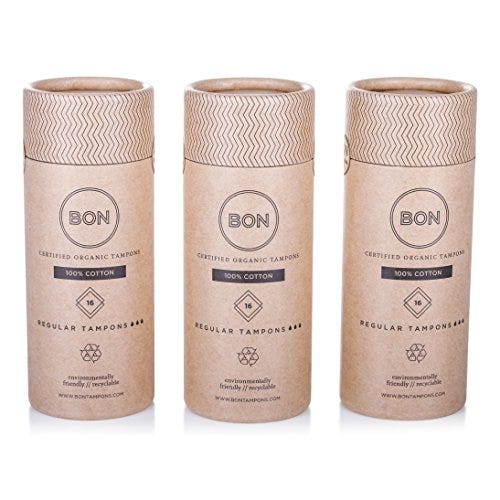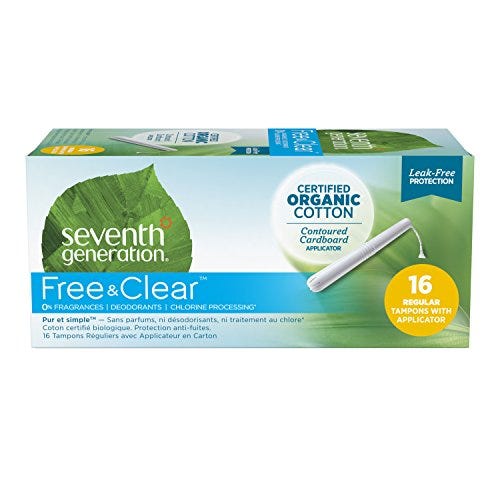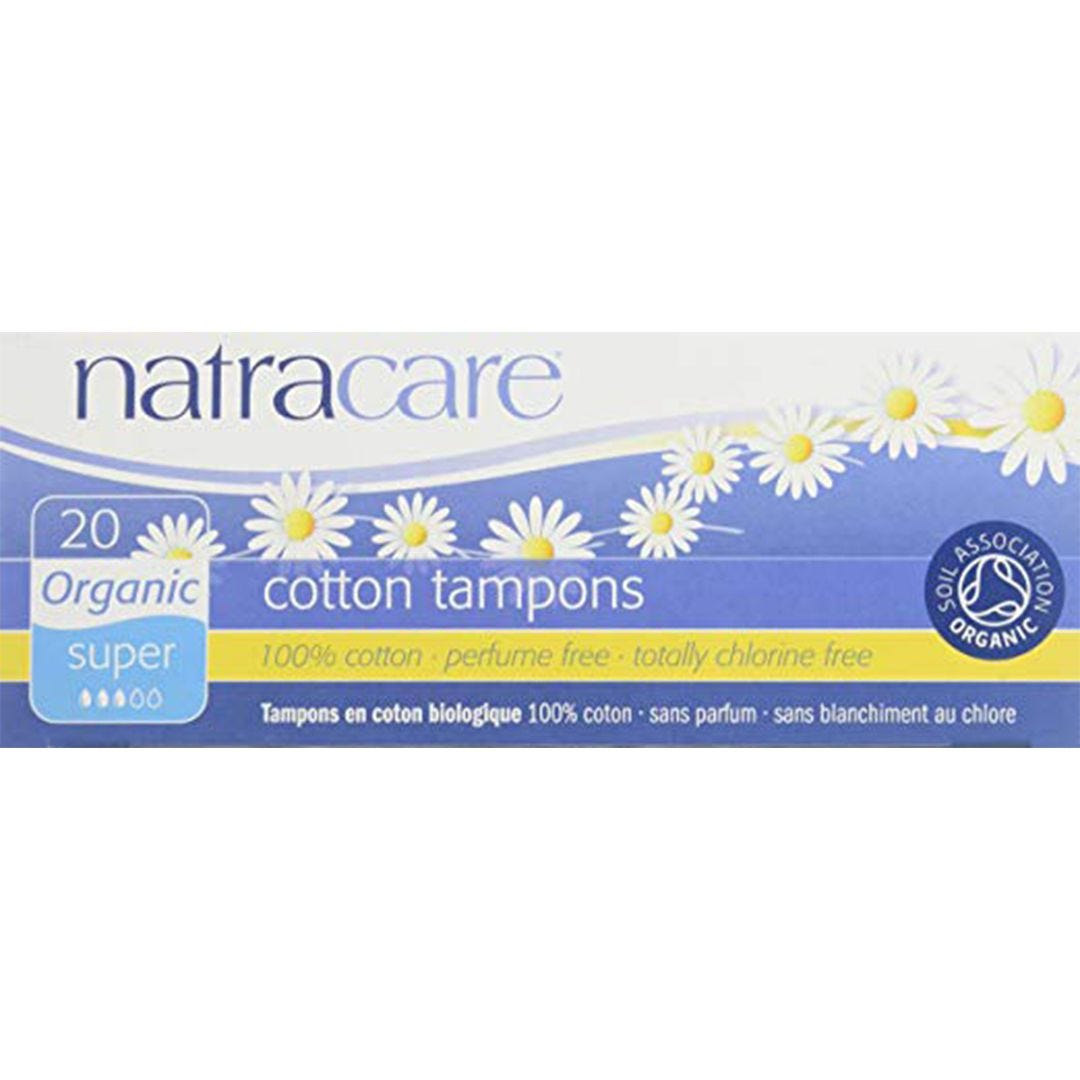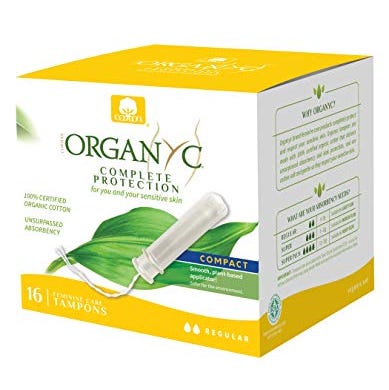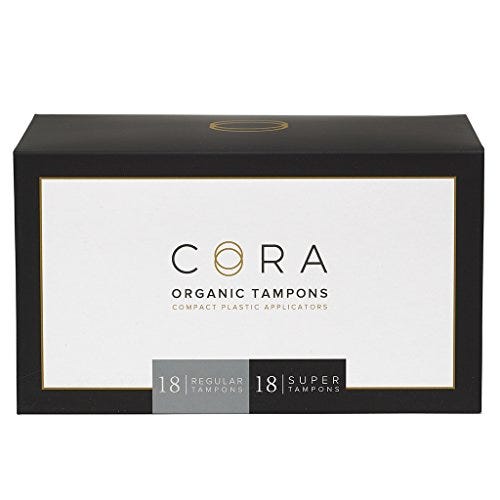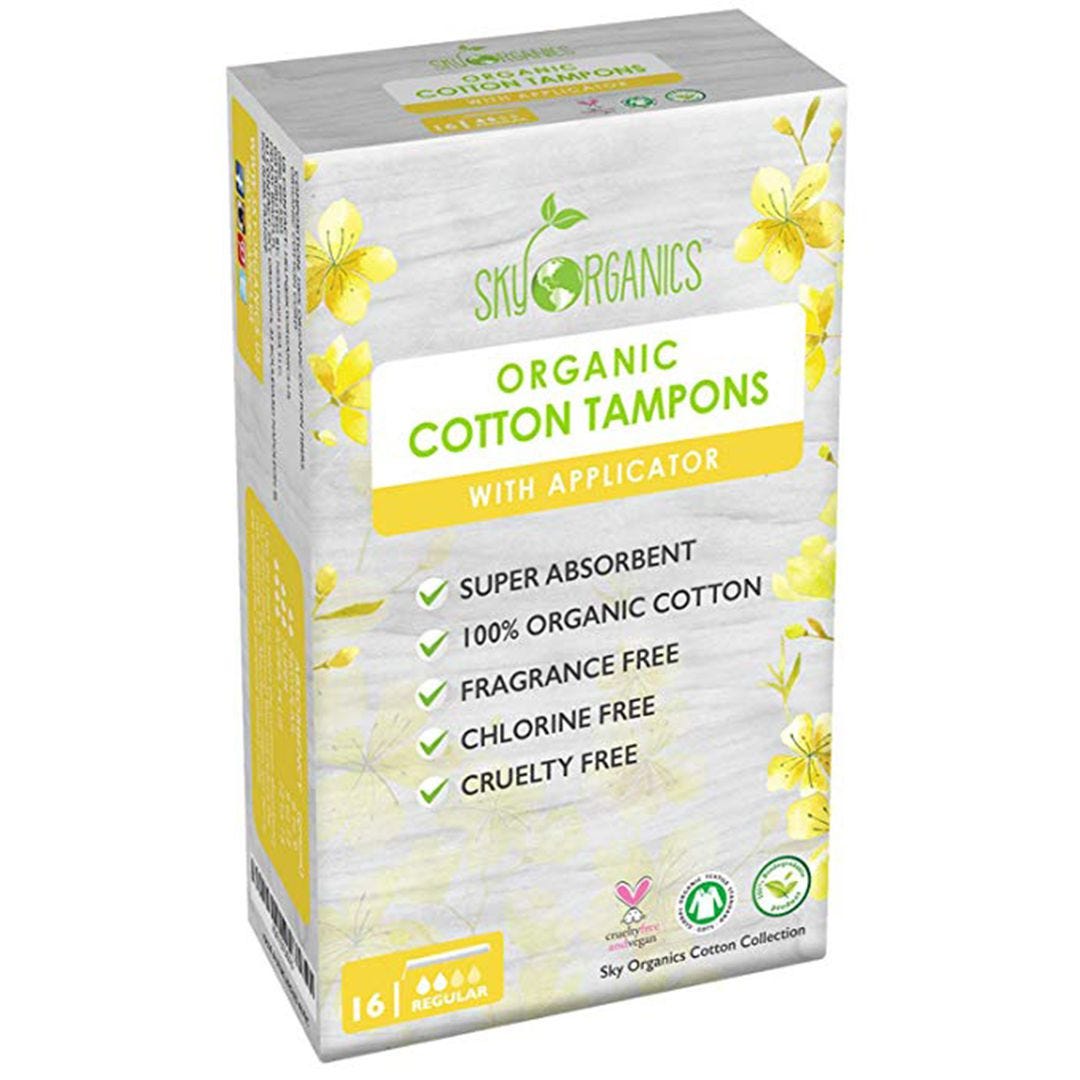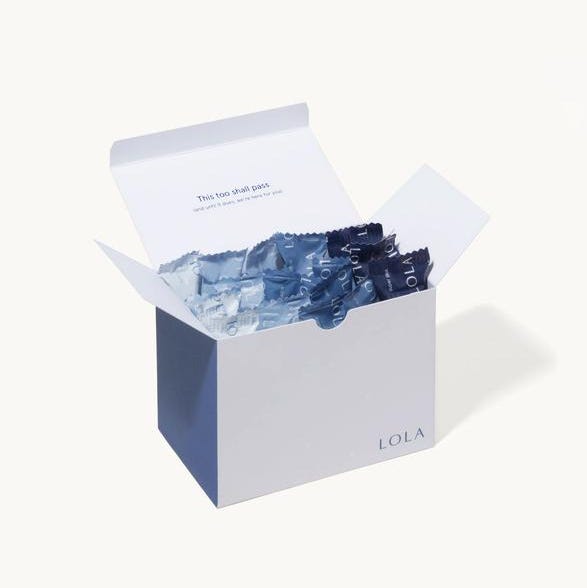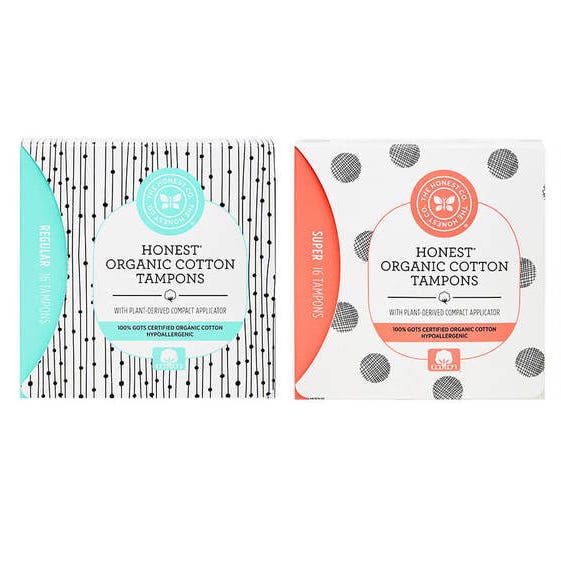There are more options than ever for how to deal with your period, including menstrual cups and period panties. But let’s face it: Tampons still reign supreme (they’re the easiest and most affordable option).
But now, more and more organic tampon options are popping up, which likely has you wondering if you need to make the switch. But uh, what exactly does “organic” mean when it comes to tampons, and does it really matter if your period supplies are all-natural?
What’s the difference between regular tampons and organic tampons?
Organic tampons differ from conventional tampons in several ways, says Alyssa Dweck, MD, an ob-gyn in Westchester, New York, and author of The Complete A to Z for Your V.
First, organic tampons are typically made from 100 percent organic cotton unlike regular tampons, which are made of rayon and/or non-organic cotton. Organic tampons are also bleached with peroxide, while conventional tampons are bleached to be bright-white with chlorine.

According to Dweck, when tampons are bleached with chlorine, it creates dioxin as a byproduct. Dioxin is a known carcinogen (a substance that is capable of causing cancer) and possible hormone disruptor, but—and this is a big but—the FDA requires all tampon manufacturers to monitor dioxin levels, Dr. Dweck says, so it’s not something you need to worry about, says Dr. Dweck.
Organic tampon manufacturers, on the other hand, claim that their tampons are free of those hormone-disrupting chemicals, as well as other synthetic materials used for absorbency, pesticides, and GMOs used in cotton production—but, according to Dr. Dweck, those “differences” haven’t been scientifically studied, so take those with a grain of salt.
Well, are there any benefits of using organic tampons instead of conventional ones?
One plus of using organic tampons is that they are usually unscented, which can be beneficial for women with sensitive skin, Dr. Dweck says.
But other than that, it comes down to personal preference: “The bottom line, though, is that conventional tampons are monitored by the FDA and are, by and large, safe for most women,” she says.

Another thing to take into consideration: Organic tampons won’t slash your risk of toxic shock syndrome (TSS), a rare, but life-threatening bacterial infection. “Toxic shock syndrome is possible with conventional or organic tampons, cotton or synthetic, organic cotton or nonorganic cotton,” says Dr. Dweck.
“The risk is associated with absorbency and length of tampon use — the more absorbent and the longer a tampon is left in the vagina, the higher the risk of TSS,” she says, which is why she suggests using the least absorbent tampon for your flow and keeping track of how long you keep it in (no longer than six to eight hours at a time).
So do you need ’em? Not exactly—but if you are interested in trying out organic tampons to either minimize sensitivity or possibly reducing chemical exposure, there are tons of options to choose from. You’ll ultimately need to choose one that feels best to you, but here are some options to get you started.
1. BON Certified Organic Tampons
These tampons are made of 100 percent organic GOTS-certified cotton, and are free of any dyes or fragrances. They are also produced without the use of chemical fertilizers, pesticides, insecticides, or bleaches.
2. Seventh Generation Organic Cotton Tampons
Not only are these one of the more affordable options for organic tampons, they’re also pretty easy to find in most drugstores or supermarkets. These tampons are also made of certified organic cotton and come with BPA-free applicators. As an added bonus, they’re also hypoallergenic and made for sensitive skin.
3. Natracare 2000 Organic All Cotton Non-Applicator Tampons
These unscented tampons are free of dyes, rayon, and chlorine and are a great option or those who prefer applicator-free insertion.
4. Organyc 100% Certified Organic Cotton Tampons
Not only are these tampons 100 percent certified organic and hypoallergenic, they also come with plant-based applicators that are safe for the environment.
5. Cora Organic Cotton Tampons
These tampons can be purchased in a multipack of regular and super-absorbency tampons that are 100 percent certified organic and fragrance free. They are also available in light absorbency, and as an added bonus, every purchased box is matched with a one-month donation of menstrual products and education to schools with girls in need.
6. Sky Organics All-Natural Cotton Tampons With Biodegradable Applicator
These fragrance- and plastic-free tampons are another great option for those who prefer to use biodegradable applicators.
7. Lola Organic Cotton Tampons
Lola is a subscription service offering 100 percent organic tampons with BPA-free applicators. You can order up to three boxes at a time an customize your order to come with your choice of light, regular, super and super-plus tampons, with free shipping to boot.
8. The Honest Co. Organic Cotton Applicator Tampons
These hypoallergenic tampons offer up another plant-based applicator option. They’re also designed to expand widthwise to provide more comfort and leakage protection.
Source: Read Full Article
